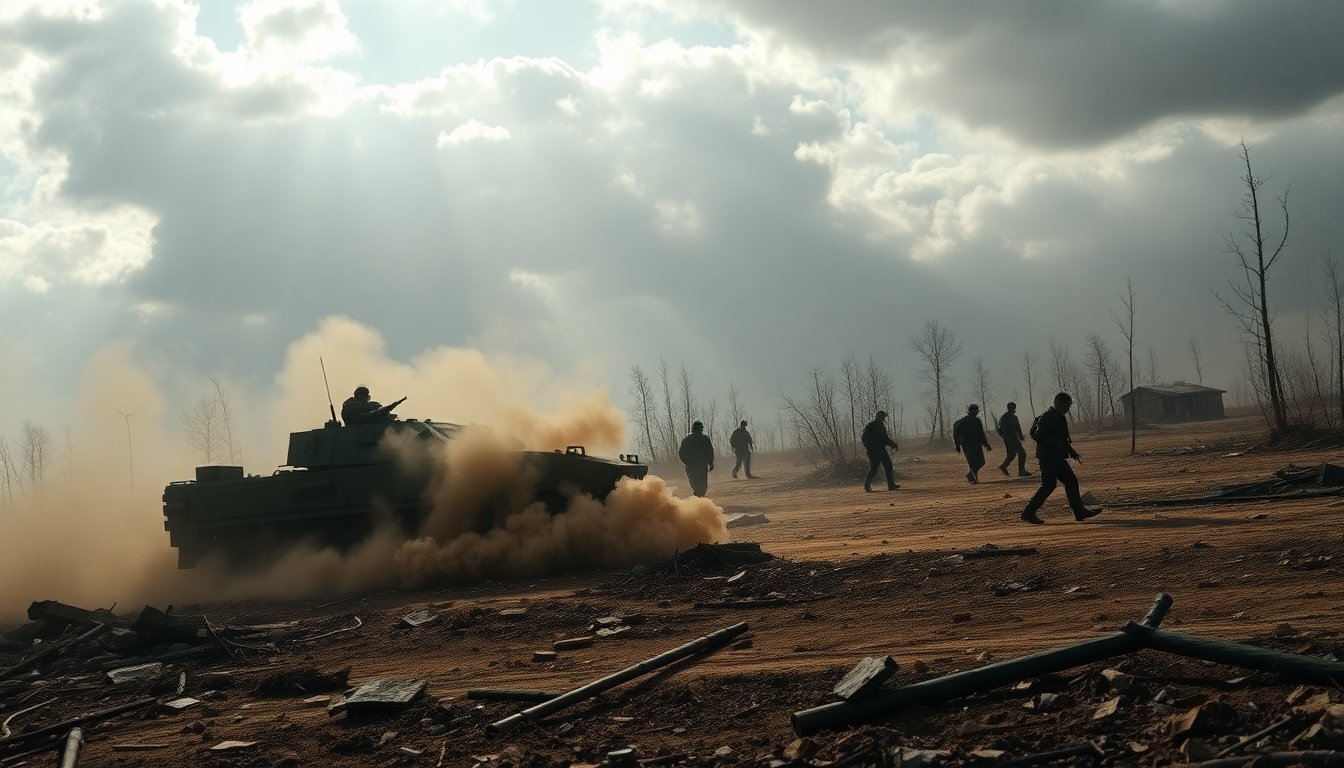Table of Contents
The ongoing conflict in Ukraine has led to numerous stories emerging from the front lines, shedding light on the experiences of military leaders and officials directly involved. Recently, Yury Trutnev, who serves as Russia’s deputy prime minister and presidential envoy to the Far Eastern Federal District, shared a particularly striking episode from his time in the Donetsk region. Trutnev, known for his modest demeanor, recounted an unexpected confrontation with a Ukrainian armored vehicle while he was stationed in a tower, armed only with a sniper rifle.
This revelation came to light during an interview with Russian military blogger Semyon Pegov, who, recognizing Trutnev’s humility, titled the conversation: “Yury Trutnev — the presidential envoy armed with a sniper rifle.” Such a title encapsulates the essence of the encounter and evokes curiosity about the circumstances that led to this unusual situation.
Confrontations on the front lines
During the discussion, Pegov inquired about a specific location near the city of Vuhledar, which Russian soldiers informally refer to as “Trutnev’s house.” Trutnev explained that he had utilized this house as a vantage point while engaging with enemy forces, all the while enduring bombardments from Ukrainian artillery. His account paints a vivid picture of the tension and unpredictability that characterize life on the front lines.
The intensity of frontline encounters
The context of Trutnev’s experience suggests a broader narrative about the challenges faced by military personnel in the region. He described a scenario where his team suddenly found themselves under fire from enemy combatants. A Russian officer accompanying Trutnev reportedly advised, “With an armored vehicle, you’ll have to handle it yourselves.” This statement underscores the harsh realities that military officers often confront, where every decision can be a matter of life and death.
Despite the initial shock, Trutnev and his team adapted quickly to the situation. On their subsequent visit to the area, they equipped themselves with a drone, enabling them to gather intelligence and respond effectively to enemy threats. This evolution in strategy highlights the importance of adaptability in military operations.
Background and implications of Trutnev’s visits
Tracing back to February, Trutnev’s multiple trips to the Donetsk region have generated significant media attention. His involvement has not only been about observing the situation but also about actively supporting Russian military forces. For instance, during a visit in February, he was reported to have delivered Lobaev sniper rifles to soldiers from the 155th Marine Brigade, further emphasizing his commitment to enhancing the capabilities of Russian troops in the region.
Linking Trutnev to military operations
The narrative surrounding Trutnev’s experiences on the battlefield intertwines with the history of the 155th Marine Brigade, which has been operational near Vuhledar since the summer of. The brigade has faced intense combat scenarios, including a significant withdrawal prior to Ukraine’s offensive actions in the Kursk region in August. Trutnev’s encounters, therefore, not only reflect his personal experiences but also represent a broader military strategy and the evolving dynamics of the conflict.
As the war continues to unfold, Trutnev’s stories provide a glimpse into the complexities of warfare, the courage exhibited by those involved, and the strategic decisions that shape the outcomes on the ground. His reflections serve as a reminder of the human elements interwoven within military operations and the resilience required to navigate such tumultuous environments.


